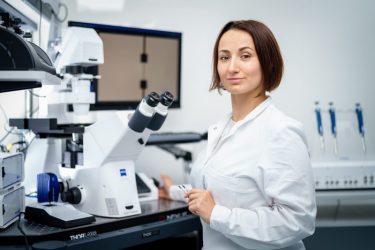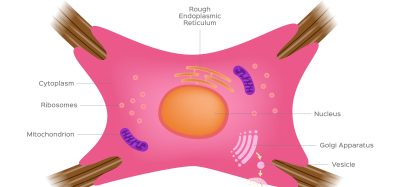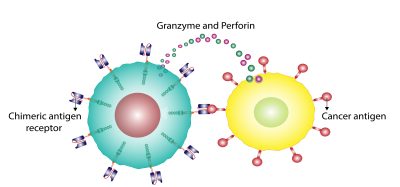Researcher develops nanoelectronics for personalised immunotherapies
Posted: 21 October 2022 | Ria Kakkad (Drug Target Review) | No comments yet
Dr Larysa Baraban, physicist at the Helmholtz-Zentrum Dresden-Rossendorf (HZDR) is researching a chip that should ultimately make it possible to develop personalised cancer immunotherapies.


Approximately 30,000 people die every day from cancer worldwide. As a result, immunotherapy is increasingly becoming the scientific focus in the fight against the disease. Together with her team, Dr Larysa Baraban, physicist at the Helmholtz-Zentrum Dresden-Rossendorf (HZDR), Germany, is researching a nanoelectronic chip that should ultimately make it possible to develop customised cancer immunotherapies. Her efforts are funded by the European Research Council (ERC) for five years through an ERC Consolidator Grant totalling nearly two million euros.
An important objective in immuno-oncology is discovering how researchers can efficiently predict whether and how a patient will respond to immunotherapy. There is currently no predictive technological platform that provides highly sensitive cancer immunity analysis as well as strategy planning for therapy.
Baraban therefore aims to develop a platform called “ImmunoChip” that studies and describes the elements of the cancer-immunity cycle. To digitise the tumour properties, Baraban is expanding the portfolio of methods in cancer research to include nano sensor technology. This continues Baraban’s prior work on developing bio-nano sensors for medical diagnostics. The sensors can convert the charges associated with biomolecules very selectively into current or electrical tension and then transmit them for analysis.
Automation now plays a central role in discovery. From self-driving laboratories to real-time bioprocessing
This report explores how data-driven systems improve reproducibility, speed decisions and make scale achievable across research and development.
Inside the report:
- Advance discovery through miniaturised, high-throughput and animal-free systems
- Integrate AI, robotics and analytics to speed decision-making
- Streamline cell therapy and bioprocess QC for scale and compliance
- And more!
This report unlocks perspectives that show how automation is changing the scale and quality of discovery. The result is faster insight, stronger data and better science – access your free copy today
“Cancer generates and quenches the biochemical signals, initiates the iterative loops and builds up feedback controls to create an immunosuppressive environment. My idea is to digitise these mechanisms,” explained Baraban.


Physicist Dr Larysa Baraban is awarded an ERC Consolidator Grant
[Credit: HZDR / A. Wirsig].
The information on the immunosuppressive activity of the cancerous microenvironment, the immune checkpoints, T cells and the efficiency of the immunotherapy is collected in corresponding data patterns. The “ImmunoChip” platform will help answer the following questions: Can the patient be treated using immunotherapy? How does the tumour protect itself? Which immunotherapy should be used?
Baraban is confident that the nanoelectronic chip will help answer these questions, therefore lead to customised immunotherapies and therefore to an improvement in treatment results, ultimately helping to save more lives.
Related topics
Disease Research, Immuno-oncology, Immunotherapy, Lab Automation, Lab-on-a-Chip, Nanotechnology
Related conditions
Cancer
Related organisations
European Research Council (ERC), Helmholtz-Zentrum Dresden-Rossendorf (HZDR)
Related people
Dr Larysa Baraban







